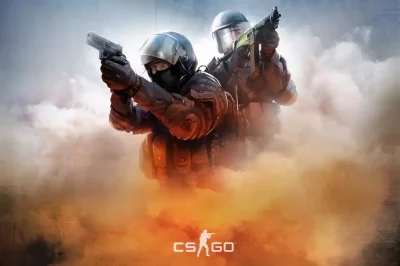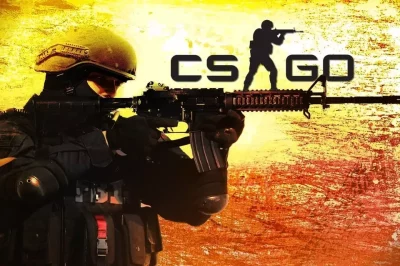 Last week, a US federal court turned down one last claim against Valve Corporation in what turned out to be a lengthy legal action over the skin gambling issues of Counter-Strike: Global Offensive (GC:GO). The case was started as part of a series of lawsuits that emerged in 2016, accusing the American video game developer of facilitating unregulated gambling available on third-party platforms where costumers were allowed to wager CS:GO skins, some of which are being sold for over $1,000 on the Stream Marketplace.
Last week, a US federal court turned down one last claim against Valve Corporation in what turned out to be a lengthy legal action over the skin gambling issues of Counter-Strike: Global Offensive (GC:GO). The case was started as part of a series of lawsuits that emerged in 2016, accusing the American video game developer of facilitating unregulated gambling available on third-party platforms where costumers were allowed to wager CS:GO skins, some of which are being sold for over $1,000 on the Stream Marketplace.
With the last claim against Valve Corporation rejected on January 7th, 2022, all of the lawsuits have now been dismissed.
In 2016 news hubs were reporting there were a lot of teenagers hitting the credit cards limits of their parents to purchase keys for the weapon cases offered in the Counter-Strike: Global Offensive game, and then gamble skins on third-party websites operating in the black market. At the time, Forbes reported that “Virtual weapons are turning teen gamers into serious gamblers”. The reports unleashed regulators’ anger and Valve Corporation faced much criticism from the Washington State Gambling Commission back then.
Now, it became clear that the video game developer managed to avoid any lasting legal damage that may have occurred from the controversial skin gambling lawsuits.
Subscriber Agreement’s Arbitration Clause Violated, Video Game Developer Claims
 The allegation that was just dismissed by the federal court relied on the claim that Valve Corporation deceived the plaintiffs in the legal action. However, it turned out they have never used Stream or played any of its games. The simple claims were not found convincing by the court that was expecting some real proof of the alleged damage that the actions and services of the video game developer inflicted on the plaintiffs.
The allegation that was just dismissed by the federal court relied on the claim that Valve Corporation deceived the plaintiffs in the legal action. However, it turned out they have never used Stream or played any of its games. The simple claims were not found convincing by the court that was expecting some real proof of the alleged damage that the actions and services of the video game developer inflicted on the plaintiffs.
The legal action in question was started by parents who said they had found out that their children were spending the money they gave them on weapon cases available on CS:GO. The parents also claimed that their children would then wager skins on unregulated third-party gambling platforms. They accused Valve Corporation of misleading the public about the type of its business and facilitating illegal online gambling activities through such third-party websites. As mentioned above, the court eventually dismissed all the claims against the company.
The federal court also decided to turn down the claims because of the Steam Subscriber Agreement which basically says that if a customer has a legal problem with Valve Corporation, they would have to work out the issue with an arbitrator and not in the court. Arbitration is considered a more simple and definitely a quicker way for deciding such issues. So, the court initially agreed with the video game developer that the arbitration clause of its Steam Subscriber Agreement was violated.
Then, the arbitrators ruled in favor of the company, as the plaintiffs did not manage to convince them that Valve Corporation was the owner of skin gambling websites that used its API. Plaintiffs also failed to prove their claims that the company used deceptive practices to lure their customers into gambling on those websites.
The arbitrators’ ruling was then appealed by the plaintiffs. The appellate court, however, ruled that while the plaintiffs’ children had agreed to the video game developers’ Steam Subscriber Agreement, their parents had not, so they were still unable to take the company to court. After the parents of the teenagers who were allegedly affected by the company’s unlawful actions once against brought up the claim for Valve Corporation’s responsibility for third-party skin gambling, the court turned it down right away, noting that the arbitrators had already made a ruling on the issue.
Plaintiffs Never Saw or Read Any Video Game Representations of Valve Corporation
 After their skin gambling claims got rejected, one more claim of the plaintiffs remained to be reviewed by the court – the one targetting the weapon cases and keys offered by CS:GO. This claim came to the name the “Lootbox Theory”. The plaintiffs said that Washington’s Consumer Protection Act was violated by Valve Corporation by deceiving them into giving their children money to spend on so-called loot boxes, which have been often described as unlicensed gambling provided under the mask of a videogame. According to the plaintiffs’ claims, the company intentionally concealed the risks associated with the provision of loot boxes and did not disclose the odds.
After their skin gambling claims got rejected, one more claim of the plaintiffs remained to be reviewed by the court – the one targetting the weapon cases and keys offered by CS:GO. This claim came to the name the “Lootbox Theory”. The plaintiffs said that Washington’s Consumer Protection Act was violated by Valve Corporation by deceiving them into giving their children money to spend on so-called loot boxes, which have been often described as unlicensed gambling provided under the mask of a videogame. According to the plaintiffs’ claims, the company intentionally concealed the risks associated with the provision of loot boxes and did not disclose the odds.
The company argued that, for the time, being loot boxes are not legally considered a form of gambling in the US. The plaintiffs’ claims, however, were dismissed because they were unable to prove they had been deceived by the video game developer because they had never visited neither a Valve nor Stream website, never used Stream nor played Counter-Strike: Global Offensive, not to mention they never saw or read any representations provided by the company about the game, keys or weapon cases.
That was the reason why the federal court agreed with Valve Corporation that the plaintiffs’ decision could not have been affected in any way by the information they have never been exposed to.